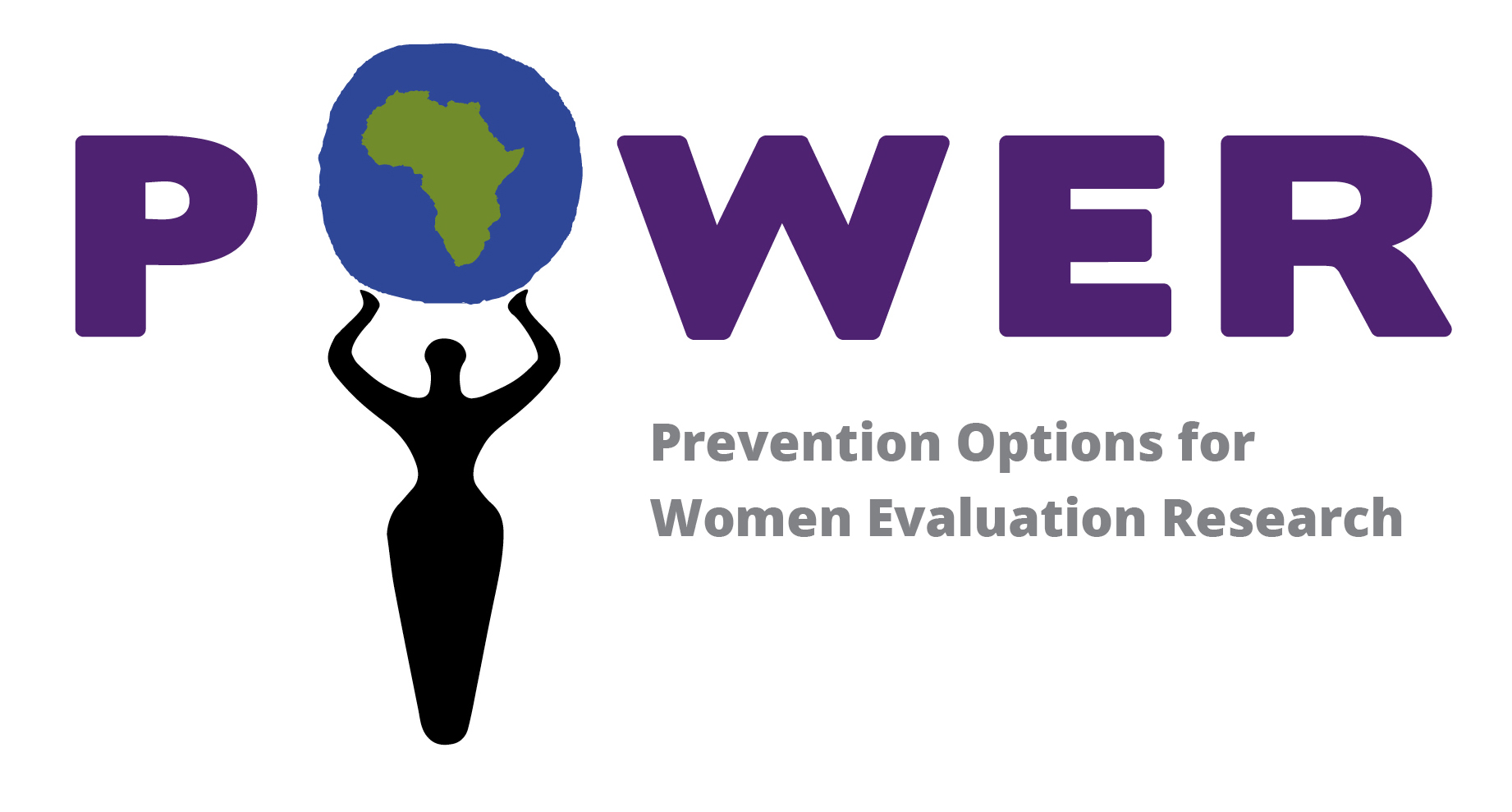POWER develops cost-effective and scalable models for implementation of ARV-based HIV prevention products for women.
- Mental models community surveys completed.
- Training for POWER’s PrEP delivery cohort completed in Cape Town, Johannesburg, and Kisumu.
- Site activation scheduled.
- My PrEP decision support tool undergoes cognitive testing.
Mental models community surveys completed. As part of the mental models formative work, the team is using a community-based survey to quantify key themes identified in the in-depth interviews (IDIs) with young women and men. Approximately 450 surveys were completed and reviewed across the three sites: Cape Town, Kisumu, and Johannesburg. The mental models methodology, led by Carnegie Mellon, is grounded in behavioral decision research. In-depth interviews (IDIs) with young women and men assessed how people interpret risk information, in this case HIV and pregnancy risks, and how they make subsequent choices, informed by their own intricate web of beliefs and theories – i.e., mental models. Analysis is underway and results will augment the qualitative interviews as part of the mental models analysis. Then, the formative report will be updated with survey results and disseminated widely.
Training for POWER’s PrEP delivery cohort completed in Cape Town, Johannesburg, and Kisumu. The POWER cohort training prior to site activation was completed at all three sites in April. Over the course of three days at each site, representatives from the University of Washington, RTI, and the site teams collaboratively provided training about data collection, qualitative interviews, counseling and adherence, and lab and pharmacy procedures among other topics. The teams spent a full day mapping out clinic flow procedures together and did mock patient visits to identify efficiencies and avoid bottlenecks.
Site activation scheduled. All three sites – Cape Town, Kisumu, and Johannesburg – are finalizing IRB/ethics approvals and securing import permits for oral PrEP donation. Once these final regulatory approvals are received, each site will activate. The POWER cohorts, where oral PrEP will be delivered to young women ages 16-25, will take place at a mobile youth clinic in Cape Town, a youth clinic in Johannesburg, and a family-planning clinic in Kisumu.
My PrEP decision support tool undergoes cognitive testing. In collaboration with Drs. Christine Dehlendorf and Nika Seidman of UCSF and Bedsider.org, POWER developed a digital PrEP decision support tool based on the My Birth Control tool. In focus groups and key informant interviews with 20 community leaders, 30 young women, and five family planning providers in Kisumu, Kenya and Johannesburg and Cape Town, South Africa, respondents universally supported the use of an electronic tool to attract interest from young women. Young women appreciated the health-promoting approach and the opportunity to review information at their own pace prior to talking with a provider. Providers thought the tool would facilitate their counseling of young women about the basics of oral PrEP, including potential mild gastrointestinal side effects in the first few weeks, adherence, and effectiveness.
No Responses
Leave a Reply

